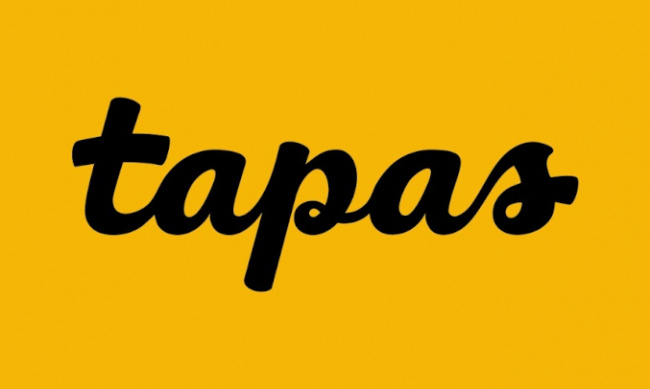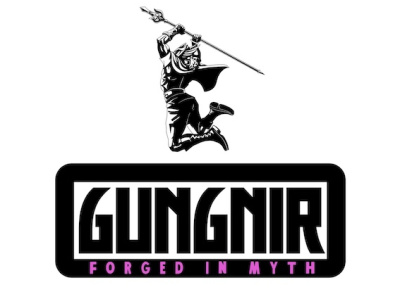Last Friday, Tapas Media announced layoffs of staff in its original content and editorial departments, including recent high-profile hires Michele Wells (see "Tapas Taps Michele Wells") and Chris Robinson (see "Chris Robinson to Tapas"). The move came as a surprise for a company that was acquired just last year for $510 billion by South Korean megacorporation Kakao Entertainment in a bid to compete with rival Naver’s Webtoon platform, and recently merged with two other Kakao acquisitions, prose fiction site Radish and martial arts fiction community Wuxiaworld.
I reached out to Tapas founder/CEO Chang Kim for clarification on what actually took place and how it reflects a shift in strategy for the company. Here are some highlights of the conversation, edited for length and clarity.
Rob Salkowitz, ICV2: What happened last week in terms of your change of direction?
Chang Kim, CEO, Tapas Media: In the stories that were written, it must have seemed like a bomb went off and we were reacting to it, but it’s not like it was some sudden thing. We are in the process of optimizing our business, which is what every company is doing in this new economic reality. Netflix, Warner Bros, you name the company, they are all trying to stay financially sound. We needed to recognize this first, because the macro-economy is changing and we need to stay ahead of it.
We had to review the current business, in this case, our in-house efforts to develop original IP. We had tried to approach that by hiring staff members, artists, editors and developing the stories in-house, the way that Marvel or traditional companies do. That’s the part we are scaling down. There are nice things about owning the content, but it’s the most time-consuming, resource-heavy approach, so we decided to scale back. Maybe we will come back to it at some point, but I think we were a little bit too early, so we are reassessing.
We are doubling down on the community, where we don’t have to come up with all the ideas ourselves. We found there's a lot more interest in the community-driven titles, because everybody's looking for diversity of content diversity of topics and themes and that’s what the community members are bringing to the table. It’s a fresh, new take, and we have had a lot more interest in community properties in terms of film and TV development. So there were a number of different reasons we decided to focus more on the community.
How extensive are the layoffs?
Those are the in-house staff members like editorial and production staff that we’re talking about. I can’t tell you the number because it’s still not finalized. This is very much ongoing as we sunset or ramp down the in-house originals. Other than that, everything is pretty much intact.
A lot of those are people you hired fairly recently, right after the acquisition, who in some cases left other jobs to join Tapas.
Yes, that’s right, and, I mean, that’s unfortunate. That’s the toughest part, honestly, the people side of things. But this is the right thing to do as a preemptive measure.
What’s happening to content currently in the pipeline?
Seasons that are in progress will be allowed to finish according to their natural story arcs. We are not going to kill off all the protagonists and yank the plug out of the wall! Then we will decide, series by series, which we want to continue for another season, and which get sunset.
Will independent creators be affected?
We offer creators a lot of different ways to monetize, from tipping to a merchandise program where they can upload images and print t-shirts or things to sell to their fans. In some cases, we pay a monthly stipend to creators to continue publishing on our platform. All that will continue.
Does this impact anything in terms of media development deals or publishing through partners like Yen Press and Andrews McMeel?
We’re not making any changes to what we call the ancillary business department or in business development, so people like Kevin Nicholas and Alex Carr, who are in that area, will be working more closely with community creators and the community department to help us find the next gems, and then pitching those community titles for development, rather than our in-house titles.
I note that Kakao’s stock price is down about 50% since the acquisition last year. Is that driving some of these decisions?
That’s Kakao Corporation that’s publicly traded. We’re owned by Kakao Entertainment, which is a privately held company, and Tapas is a Delaware corporation. But yes, it’s true we are discussing things very closely with Kakao, because they are our corporate owner now. Obviously, they paid a huge price to acquire Tapas and Radish. They want to make sure we are successful, and they are 100% committed to supporting us. It’s very important for them to see us succeed because they are looking at their own IPO next year, so they have a very big vested interest to make sure the US businesses are going really well.
In terms of the profitability, those are the financial numbers we are reviewing, so that part is true, but in terms of deciding or dictating strategy and having them say, "Forget about everything else you’re doing because you’re doing XYZ from now on," they will never say that because they don’t understand the US market like we do. But yes, we are discussing things closely back and forth, with some arguments even. That’s just the nature of the relationship.
Anybody trying to paint pictures that the Tapas people are just puppets and they are forcing us like Big Brother, or that they came in with a fully baked strategy they are forcing us to execute, that’s not the right picture.
So it sounds like you are betting big on the community because that’s where you see the market going and where the energy is coming from, and you are pivoting toward a lower cost, higher reward mix in your content at this time?
100%, yes, definitely. That is a key part of my vision, and that’s how we are growing the market for digital comics today. It’s still a niche market in the U.S., but there is a huge audience and a huge group of people who can produce their own IP, so our vision is to be the top choice for those creators, who want to build their IP into a franchise.
Where do you go from here?
You know the way I look at it is, every other company is trying to figure things out in this new reality, and we’re part of that. Nothing changed absolutely in terms of our ultimate vision and mission. Sometimes you make those changes that are not necessarily the most pleasant, but then you have to make those choices, and decisions.
I’m very excited about the [Radish/Wuxiaworld] merger completion. That was a little champagne moment for us within the company, even though we didn't make a big splash this time. It was like Chapter One, and then we continue growing. We have a lot of great things going. It’s not like the house is burning and everything's absolutely nightmarish. That might be what the people are trying to suggest but that's not the reality.
The opinions expressed in this column are solely those of the writer(s), and do not necessarily reflect the views of the editorial staff of ICv2.com.
Rob Salkowitz (@robsalk) is the author of Comic-Con and the Business of Pop Culture.

Column by Rob Salkowitz
Posted by Rob Salkowitz on August 5, 2022 @ 12:35 am CT
MORE COMICS
Publisher Founded by Former Heavy Metal CEO to Expand with Three Imprints
August 15, 2025
The publisher, founded by former Heavy Metal CEO Michael Medney, will expand with three new imprints.
Madison, Wisconsin on August 10, 2025
August 15, 2025
We visited the large Barnes & Noble store in Madison, Wisconsin on a Sunday afternoon, and found manga and merch displays expanded.
MORE COLUMNS
Column by Scott Thorne
August 11, 2025
This week, columnist Scott Thorne notes a new twist in the Diamond Comic Distributors saga and shares his thoughts on the Gen Con releases that will make the biggest impacts.
Column by Jeffrey Dohm-Sanchez
August 7, 2025
ICv2 Managing Editor Jeffrey Dohm-Sanchez lays out the hotness of Gen Con 2025.








